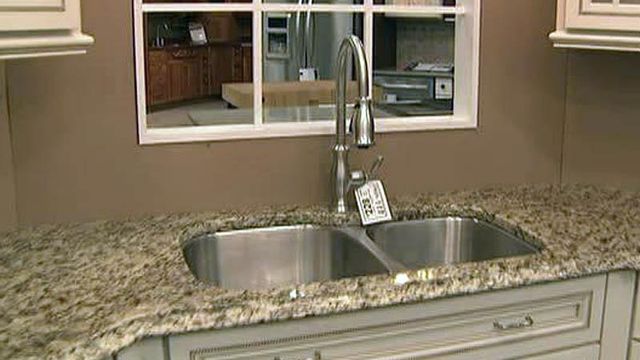State law interpretation lets Lowe's give shoppers tax break
Foggy state tax laws have created a dispute among home improvement stores and could be costing North Carolina millions of dollars in revenue.
Posted — UpdatedMooresville-based Lowe's Cos. doesn't charge sales tax on items like windows, carpeting, tile, cabinets, counter tops and appliances that store contractors install in customers' homes. When customers buy the goods at Lowe's for a do-it-yourself project, they have to pay the 6.75 percent state sales tax.
Lowe's apparently stands alone in giving customers the tax break. The company's main competitor, Home Depot Inc., and other home improvement stores charge sales tax on materials regardless of whether their crews install the goods for customers.
"We've had a few customers in years past that said, 'Why are you charging tax? Lowe's doesn't charge tax.' We say, 'Because we have to,'" said John Raper, owner of Floors To Go By John Raper.
Lowe's officials referred WRAL News to the state law on contractor performance agreements.
The law states that contractors like plumbers and furnace repairmen pay what's commonly called a "use tax" for products used in repair projects and then roll that cost into the final bill, which doesn't include an itemized sales tax charge. Because most contractors get wholesale discounts, the use tax they pay wouldn't reflect any retail mark-ups that would be included if a customer were to pay sales tax on the materials.
"If a transaction is exempt from sales tax but subject to use tax, use tax is paid by Lowe's directly to the state and would not be reflected on a cash register receipt," Lowe's spokeswoman Karen Cobb said in a statement.
Lowe's officials declined to discuss the issue further, but competitors maintain the company is misinterpreting the state tax laws to its advantage.
"We just want a level playing field," said Andy Pittman, owner of Jeffrey's Appliance Center in Raleigh.
Pittman said his accountants advise him to collect sales tax on everything he sells, whether his employees install an appliance at a customer's home or not. That stance recently cost him a dishwasher sale, he said.
"The customer didn't buy from us because they were told there was no sales tax (at Lowe's). We had sales tax, and so they shopped there because it was about a $40 difference," he said.
Home Depot declined to discuss the issue.
Shopper April Pyatt said that avoiding state sales tax would make a difference in where she bought appliances or other big-ticket home improvement items.
"In this economy that we're living in, it would make a difference if there were no sales taxes associated with that. That's very important right now," said Pyatt, who was shopping at a Lowe's in Cary.
State tax collectors also notice a difference because use taxes likely bring in millions of dollars less to North Carolina's coffers than retail sales taxes would – revenue that is sorely needed as the state faces a $2 billion budget deficit.
A state Department of Revenue official said she couldn't comment on the issue, however, citing taxpayer confidentiality.
"The department is committed to ensuring that all businesses in North Carolina comply with the tax laws so that everyone operates on an even playing field," Linda Struyk Millsaps, chief operating officer for the Department of Revenue, said in a statement. "The department will continue to do everything within its power to make sure all North Carolina businesses meet their tax responsibilities and pay their fair share."
Sources told WRAL News the department has been in a long-running dispute with Lowe's over the company's reading of the law. The disagreement could lead to litigation and might require lawmakers to clarify state statutes.
Counties that charge a local sales tax also could be losing revenue under the Lowe's interpretation.
Some tax professionals said they see how Lowe's could conceivably fall under the contractor performance agreement section of the law, but they said North Carolina's tax code is awfully murky.
Lowe's competitors said they just want the law to be enforced fairly.
"If we're not required to collect sales tax, (then) obviously we don't want to. If sales tax is required on this type of installation, then we want everybody to be accountable to the same things we're having to be held to," Pittman said.
• Credits
Copyright 2024 by Capitol Broadcasting Company. All rights reserved. This material may not be published, broadcast, rewritten or redistributed.





